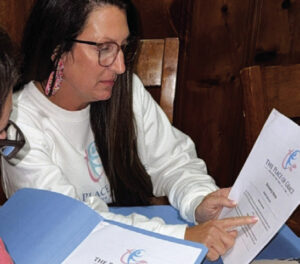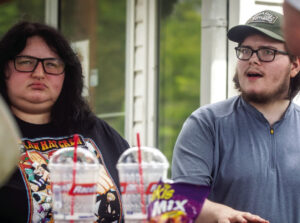Cool weather puts freeze on planting
By By Steve Strong / area horticulture extension agent
March 24, 2004
Like a bully in the schoolyard sneaking a surprise tug on the elastic band of your underwear, Mother Nature delivered a painful snap of frosty weather to early-planted gardens this week.
Vegetable growers in the throes of spring Garden Fever are again the first victims of the growing season, and are likely to see the fruits of their labors delayed just like in years past.
Folks in the Deep South should be used to "Blackberry Winters," when chilling temperatures roll in just in time to burn back the growth on new shoots. Covering rows with buckets, old bed sheets, and any kind mulch available is a last ditch effort to save the plants already in the ground, but of course the best option is always to wait until the recommended planting date for your crop.
Planting dates for summer season vegetables are generally around the third week of April, and are based on historic weather data collected from our area. East Central Mississippi is split between two different cold hardiness zones (Zone 7 and Zone 8), which means the last frost dates can range from the final week of March through mid-April.
Is it time yet?
The right time to plant is really based on the temperature of the soil remaining at a constant level that promotes a healthy root system for summer crops. Vegetable experts say that when the soil stays around 55 degrees Fahrenheit or higher, then the ground is warm enough for optimum seed germination and root growth.
Cool wet soils can cause a number of problems on heat-loving crops, and gardeners are liable to see several of these symptoms during the next few weeks. The most obvious problems occur on tomato, since it is the single most popular home garden vegetable grown, and is also among the crops always planted too early.
Purple colored veins on the undersides of leaves and on the new stem growth are sure signs that cold weather has struck. The purpling is caused by a lack of phosphorus uptake (a nutrient deficiency resulting from cool soil temps), and the plants will usually become stunted and may never fully recover from their root injury.
Bean and pea varieties are other summer veggies that do not prefer cool wet soil conditions. They are especially prone to "damping-off" root diseases like Pythium rot, which causes the stems to decay, and young sprouts to flop over just at the soil line. Because these crops are normally sown as seed directly into the soil, warm soil temperatures are crucial to survival.
Playing the odds
Gardeners can hedge their bets by using seed treated before planting with a garden fungicide. Many of the seeds purchased from garden centers and farm supplies are pre-treated, with either a pinkish or other colored coating to identify the fungicide.
However, treated seed are not immune to disease attack either, and planting at the right date is the only assurance against frost problems.
The Garden Tabloid is a free vegetable publication published by the MSU Extension Service, and can be picked up at county offices or found online at www.msucares.com. Publication 1091 has all the information a home gardener needs to choose disease resistant varieties adapted for Mississippi, in addition to lists of approved garden pesticides and recommended cultural practices.
Corn is one of the few veggies that should be planted right now, while the garden is dry enough to till and before the hot weather brings on the summer crop of insects.
Local garden centers don't mind if you plant too early, and come back again later for a second planting, but please do not blame local vendors for bad seed or transplants when the fault mostly lies in the hands of the impatient gardener.













